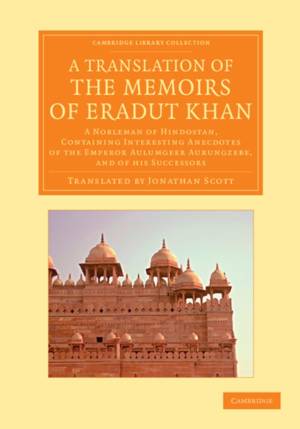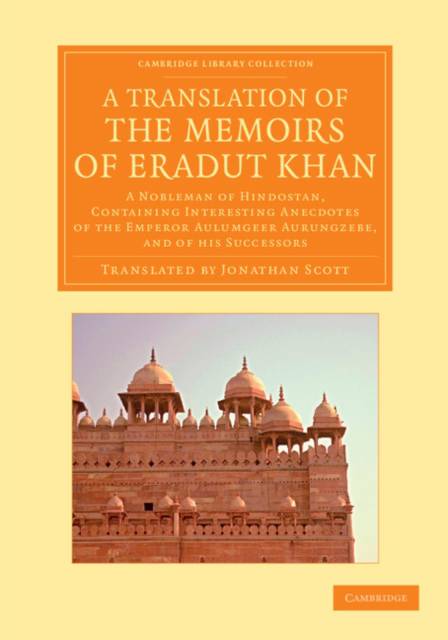
Je cadeautjes zeker op tijd in huis hebben voor de feestdagen? Kom langs in onze winkels en vind het perfecte geschenk!
- Afhalen na 1 uur in een winkel met voorraad
- Gratis thuislevering in België vanaf € 30
- Ruim aanbod met 7 miljoen producten
Je cadeautjes zeker op tijd in huis hebben voor de feestdagen? Kom langs in onze winkels en vind het perfecte geschenk!
- Afhalen na 1 uur in een winkel met voorraad
- Gratis thuislevering in België vanaf € 30
- Ruim aanbod met 7 miljoen producten
Zoeken
A Translation of the Memoirs of Eradut Khan
A Nobleman of Hindostan, Containing Interesting Anecdotes of the Emperor Aulumgeer Aurungzebe, and of H
Iradat Khan
€ 58,45
+ 116 punten
Omschrijving
A nobleman of the court of the Mughal emperor, Iradat Khan (c.1649-1716) experienced the rule of Aurangzeb (1618-1707) and observed at first hand the decline of the Mughal empire. This English translation of his memoirs was first published in 1786 by Jonathan Scott (1754-1829), a captain of the East India Company. He translated Khan's memoirs in order to educate the British about India's history and inform them about the Mughal empire. In these memoirs Khan relates anecdotes of his encounters with Aurangzeb and recounts the events following the emperor's death, including the rule of his son Bahadur Shah (1643-1712) between 1707 and 1712. The memoirs conclude with the death of Jahandar Shah (1661-1713), who ruled only briefly before being beaten in battle, captured and executed. Also included are extracts from Aurangzeb's last letters.
Specificaties
Betrokkenen
- Auteur(s):
- Vertaler(s):
- Uitgeverij:
Inhoud
- Aantal bladzijden:
- 114
- Taal:
- Engels
- Reeks:
Eigenschappen
- Productcode (EAN):
- 9781108055130
- Verschijningsdatum:
- 28/03/2013
- Uitvoering:
- Paperback
- Formaat:
- Trade paperback (VS)
- Afmetingen:
- 178 mm x 254 mm
- Gewicht:
- 213 g

Alleen bij Standaard Boekhandel
+ 116 punten op je klantenkaart van Standaard Boekhandel
Beoordelingen
We publiceren alleen reviews die voldoen aan de voorwaarden voor reviews. Bekijk onze voorwaarden voor reviews.









